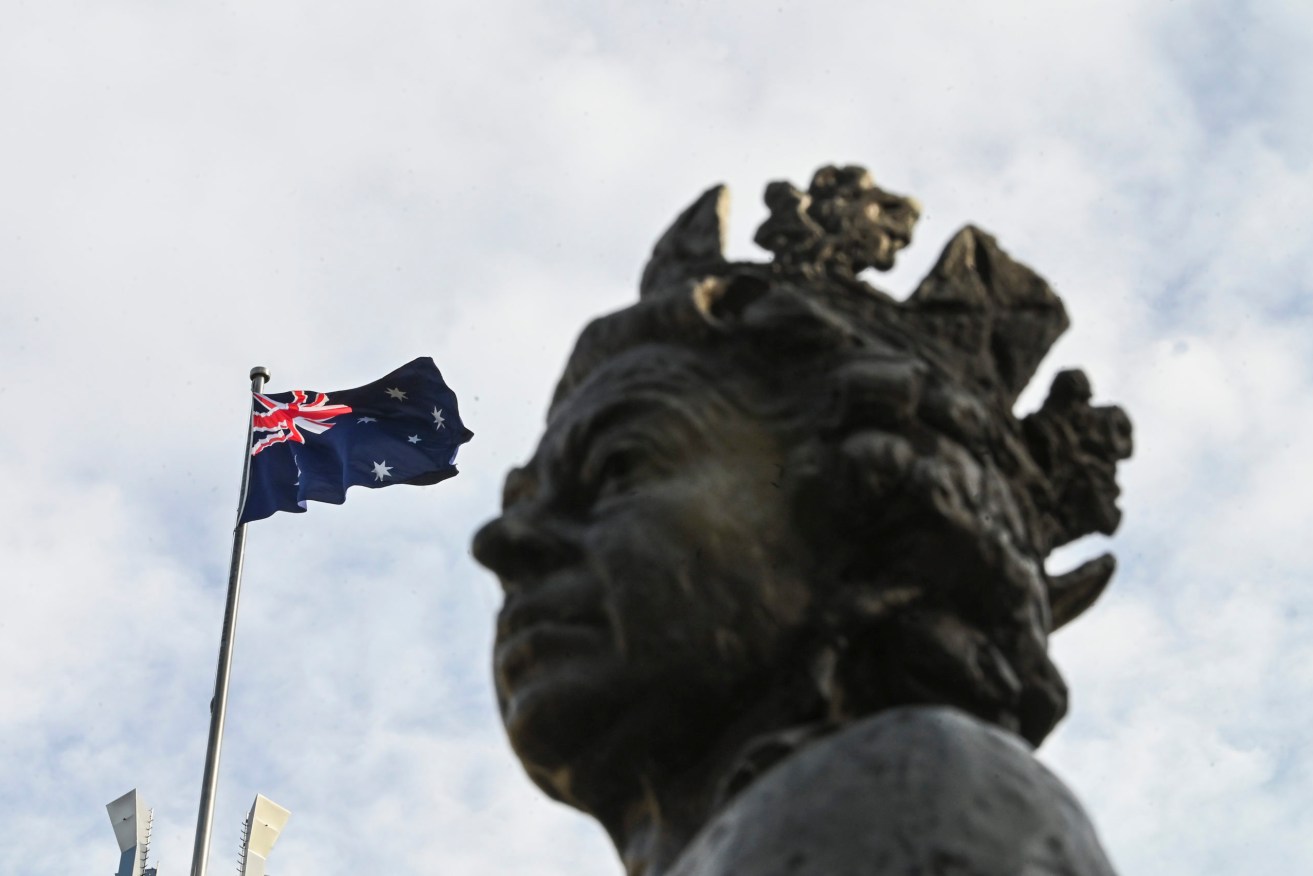Kerr told Queen about potential for Whitlam dismissal: letters
UPDATED | The Queen was told of Sir John Kerr’s consideration of the dismissal of prime minister Gough Whitlam months before the historic decision of November 11, 1975.

Photo: AAP/Lukas Coch
But the former governor-general insists he did not inform the palace in advance of his final decision.
The National Archives of Australia on Tuesday released details of letters between the former governor-general and the Queen in the lead-up to the dismissal of the Whitlam government.
In a letter to the Queen after he sacked Whitlam, Sir John wrote: “I should say I decided to take the step I took without informing the palace in advance because, under the Constitution, the responsibility is mine, and I was of the opinion it was better for Her Majesty not to know in advance, though it is of course my duty to tell her immediately.”
The letter included three attachments: the dismissal letter to Whitlam, a legal opinion from the then chief justice Sir Garfield Barwick, and a letter from the then opposition leader Malcolm Fraser.
Archives director-general David Fricker also detailed to reporters at a briefing in Canberra a letter from Sir John to the Queen dated September 12, 1975.
“I’m also keeping my mind open as to the constitutional issues. If the Prime Minister and the Leader of the Opposition get into a battle in which the Senate has defeated the budget, the Prime Minister refuses to recommend a dissolution, my role will need some careful thought,” Sir John wrote.
Sir John included a press clipping which explored the options of dismissal of the Whitlam government.
“So on the 12th of September 1975, Sir John is laying this out,” Fricker said.
The Queen’s secretary Sir Martin Charteris wrote back to Sir John referring to the practice that if a parliament refused supply – legislation allowing money to pay for government – it was constitutionally proper to grant a dissolution of the parliament.
Sir Martin later wrote back to Sir John, a week before the dismissal, acknowledging he had “reserve powers”.
“With great respect, I think you are playing the vice-regal hand with skill and wisdom. Your interest in the situation has been demonstrated, and so has your impartiality.
“The fact you have powers is recognised. But it’s also clear you will only use them in the last resort, and then only for constitutional – and not for political – reasons.”
The academic behind the palace letters’ release, Professor Jenny Hocking, said it was totally improper for the governor-general and the Queen’s private secretary to discuss the use of Sir John Kerr’s “arcane” reserve powers to sack prime minister Gough Whitlam.
Hocking said the two letters from Sir Martin Charteris in the week before the dismissal were scandalous, as he gave advice on the highly-contested use of his reserve powers.
“For the Queen’s private secretary to be commenting to the governor-general, who is about to exercise those powers, on the existence and possible use of those very powers, I think is alarming,” she told reporters in Melbourne on Tuesday.
Hocking said Sir John had refused to discuss his options with Whitlam and refused to accept the solicitor-general and attorney-general’s advice about the possible use of the reserve powers.
“He is instead taking advice from the Queen’s private secretary on that question,” she said.
She described it as a troubling discussion.
“There is no doubt that they had conversations that clearly affected the decisions that Kerr made and the way in which he made those decisions.”
She said it was also inappropriate for Sir John to talk to Prince Charles about his concerns that he may be sacked as governor-general, a discussion the Prince of Wales then shared with the Queen.
“These are not appropriate conversations to be had between a governor-general and a member of the royal family.
“It’s very concerning that those conversations were had and that the Queen then engaged in them further.”
The palace was aware of the possibility of the dismissal, but not when that would happen, Hocking said.
Hocking said the head of a constitutional monarchy must at all times remain politically neutral and remain above the politics of the day.
But she said the letters showed Sir John communicated with the Queen about political matters, and the monarch in response engaged with that conversation at a very political level.
“You could not get more political than the crisis in the Senate that the government faced, and the eventual dismissal without warning of the elected government.”
-AAP
Want to comment?
Send us an email, making it clear which story you’re commenting on and including your full name (required for publication) and phone number (only for verification purposes). Please put “Reader views” in the subject.
We’ll publish the best comments in a regular “Reader Views” post. Your comments can be brief, or we can accept up to 350 words, or thereabouts.




